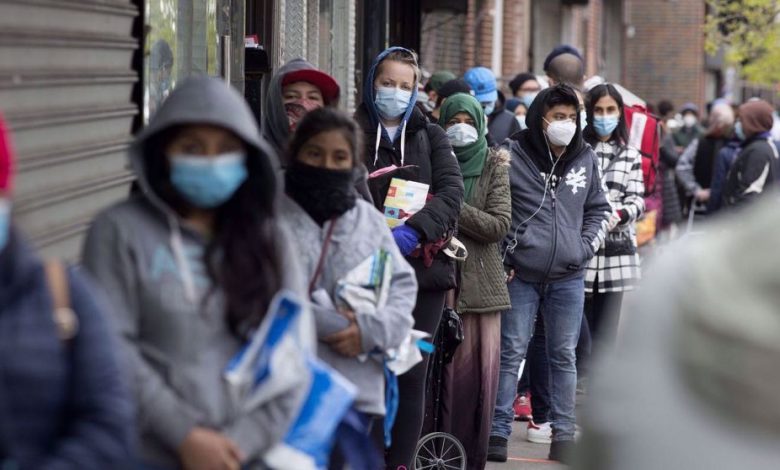8 million more Americans fall into poverty due to pandemic: Study
Millions of Americans have fallen into poverty due to the impact of the COVID-19 pandemic, according to new research.

A study from Columbia University published on Thursday found that the number of Americans in poverty grew by 8 million since May.
The $2 trillion stimulus package announced by the US government in March, known as the Cares Act, initially helped prevent 18 million families from going into poverty in March and April.
The effects of the direct relief – a one-time maximum $1,200 stimulus check to individual Americans and an additional weekly $600 in unemployment benefits – has diminished when the aid expired at the end of the summer, the study found.
Since then, monthly poverty rates have substantially increased.
The poverty rates in August and September stood at 17.3 percent and 16.7 percent respectively, closer to what researchers estimate would have been the rates without the coronavirus relief package.
The job market has slightly improved since May, but the rebound in the economy has been too slow to make a meaningful difference.
The economy is showing further signs of contraction due to increasing layoffs, a surge in coronavirus cases and lack of progress on stimulus talks between the White House and Congress.
Minorities including Black and Hispanic Americans are most affected. The unemployment rate among these minority groups have been twice that of white Americans during the pandemic.
About 25 percent of African Americans and Latinos are now in poverty, up two points for both groups in January. White Americans have a poverty rate of 12 percent, which is slightly up from January.
The findings were similar to a separate study published jointly by the University of Chicago and the University of Notre Dame earlier this week that showed a comparable rise in poverty over the last few months.
Authors of both studies urged Congress to use their findings as the basis for future stimulus policies.
“For low-income individuals and families, the government response to the pandemic more than offset the sharp decline in earnings early on in the pandemic. However, these gains appear to have faded as some of the benefits expire,” said the authors of the University of Chicago and Notre Dame study in a statement.
However, negotiations between the White House and Congress have stalled as coronavirus cases climb toward a third peak across the US, surpassing a total of eight million on Thursday.
Congress has failed to pass a major relief package since the Cares Act was passed on March 27.
President Donald Trump has been widely criticized over his erratic response to the pandemic. Polls show that he is trailing his Democratic challenger, Joe Biden, by wide margins less than three weeks before the November 3 election.







